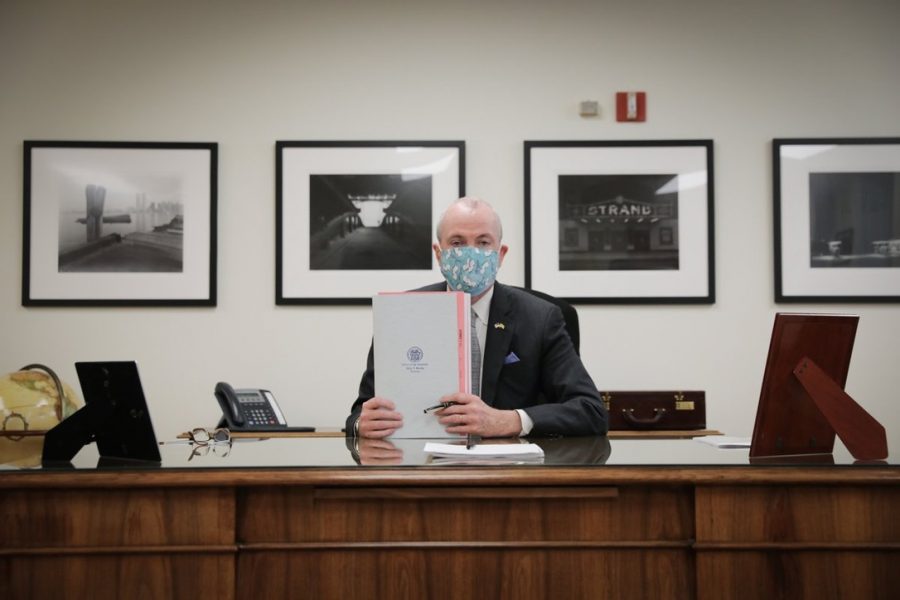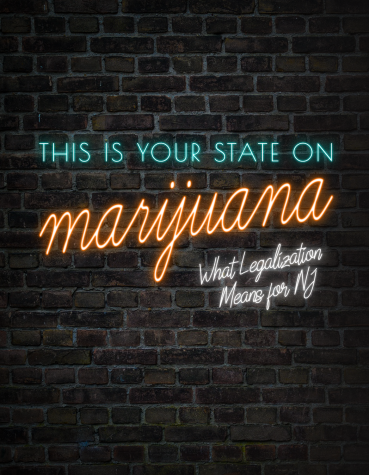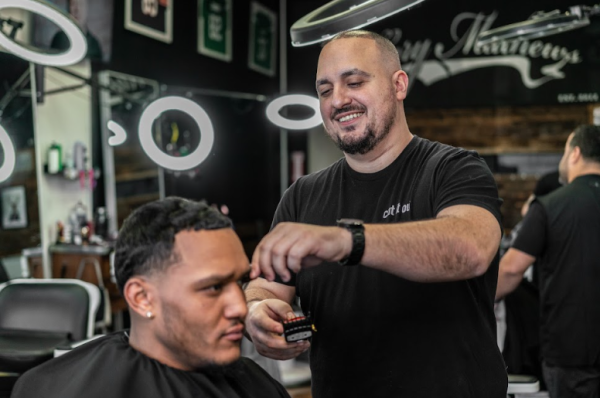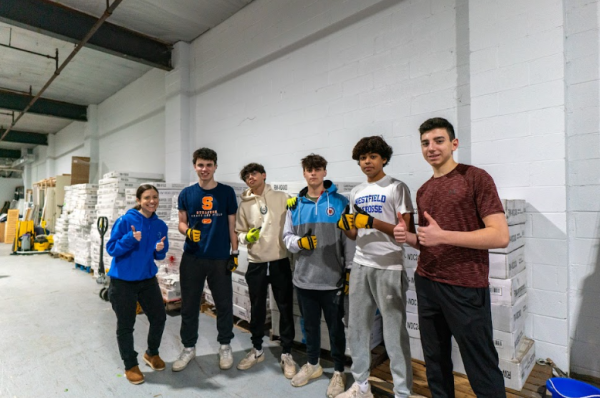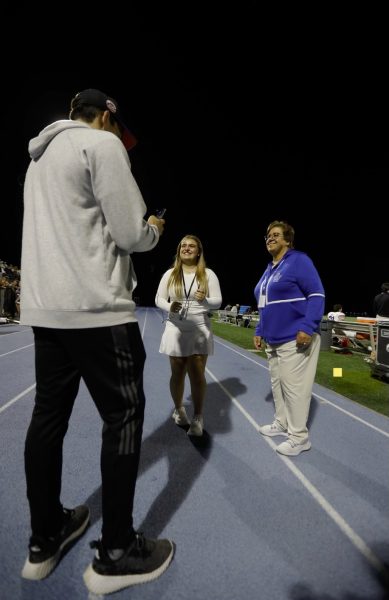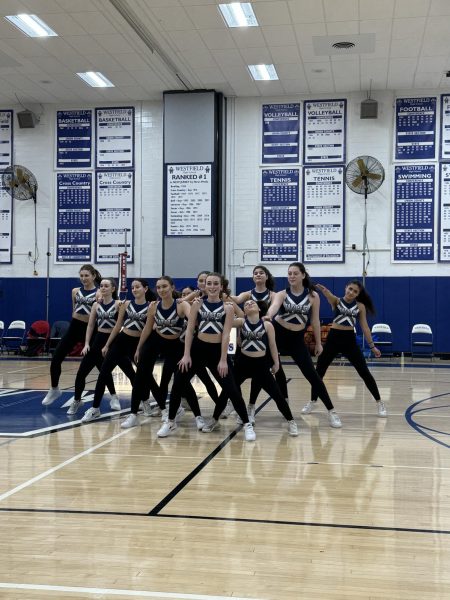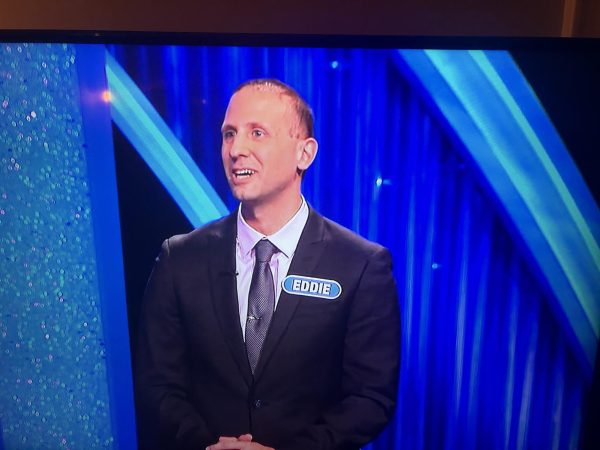Westfield reacts to the legalization of marijuana
Photo courtesy of Twitter @GovMurphy
Governor Murphy signs historic marijuana legislation into law on Feb. 22
On Feb. 22, New Jersey Governor Phil Murphy signed a bill legalizing the recreational use of marijuana in New Jersey. After the bill was passed, Westfield residents began to express their concerns about what the governor’s historic decision would mean for Westfield’s teenagers.
Murphy’s bill decriminalizes the use of marijuana and possession of up to six ounces and dismisses all previous cases within these parameters. Additionally, if any underage citizens are suspected of using marijuana, the consequences are far more lenient than before. The guilty party will no longer be arrested and police are no longer allowed to contact the parents or guardians of a minor in possession of marijuana or alcohol.
Westfield Police Chief Christopher Battiloro posted a letter on the department’s Facebook page about the decriminalization of marijuana. Regarding the law involving minors and marijuana, he wrote, “I fully believe that we parents and guardians fully deserve, and more importantly, have a right to know when our children are involved in dangerous situations.”
In an exclusive interview with Hi’s Eye, Battiloro explained that he expected the legalization of marijuana, but didn’t foresee some of the other details. “The content, the fine-tuning and the details of those laws caught a lot of us by surprise,” Battiloro said. Due to the details of the law, Battiloro expected the outpour of comments on his Facebook post.
The comment section of the post was full of frustrated and concerned parents, especially regarding the lack of communication between parents and police officers in a situation involving recreational marijuana or alcohol use. Battiloro wrote, “To apply these new laws to a ‘real-life’ situation, if an officer observes a 12-year-old– or a juvenile of any age–consuming alcohol and/or smoking marijuana in violation of the law, that officer CANNOT contact the juvenile’s parent or guardian–unless this behavior has been previously documented.”
Battiloro said he understands the objective of the law was to keep kids out of the legal system and agrees with that sentiment but found the law’s execution to be a bit flawed. “There are a lot of aspects that I like. [The Police Department] always tries to divert juveniles from the criminal justice system, and the way things were before when it came to drugs, we didn’t have the ability to issue these warnings.” I fully believe that we parents and guardians fully deserve, and more importantly, have a right to know when our children are involved in dangerous situations. — Westfield Police Chief Christopher Battiloro
To further ensure the safety of the kids in our community, Battiloro wrote in the letter, “Working with the public school district, the Westfield Police Department has assigned full-time School Resource Officers to the high school and both intermediate schools. It has also recently created a dedicated Juvenile & Community Policing Bureau, which is focused on ensuring the safety and well-being of our youth, as well as with other vulnerable segments of the population.”
Despite this statement, many parents are still worried about their children. An anonymous WHS parent said, “Regarding the new laws, I will have to be more aware of what my teenagers are doing since now the drugs they might be exposed to are legal.”
Battiloro also expressed concerns about how the enforcement of these laws will even be possible because the new laws were immediately put in place, giving local law enforcement no time to develop a plan. “There’s not presently a system for issuing warnings to juveniles. There’s no uniform written warning to be utilized. There’s no way to record these violations… there’s no network, no system or apparatus in place.”
Essentially, if someone is caught using marijuana in Garwood one night and then caught in Cranford the next, the person would likely be treated as a first-time offender in both scenarios because, as of now, police departments don’t have a way of tracking this information. The incidents will not show up on the juvenile’s record so there is no way of knowing their history to enforce any part of the law.
WHS students have mixed opinions about the new bill. Senior Henry Stewart said, “I think marijuana should be decriminalized because drug decriminalization puts a focus on rehabilitation for addiction instead of someone facing jail time. At the same time, I think it’s important parents know when their kids are drinking or smoking. This doesn’t really make sense to me; I think a lot of people are confused, especially by the inclusion of the alcohol provision. New Jersey seems to have taken five steps forward, but all New Jersey had to do was take one step forward.”
“I think that [marijuana] is a tricky subject,” an anonymous WHS senior said. “As someone who used to smoke [marijuana], I know friends who are pretty addicted.” He went on to express that he felt students under the age of 16 who use marijuana should be reported to their parents to ensure that they don’t develop any serious issues down the road.
Another anonymous WHS senior said, “I was very excited when I read the new laws because it aims to keep juveniles out of the court system for minor drug offenses. Now I don’t have to worry as much about smoking [marijuana] with my friends.”
A different anonymous WHS student said, “I have never tried marijuana and don’t plan to, but I really support the new laws for economic purposes and social justice. I never understood how people could be put in jail for years over marijuana charges. I found it really sad how families were ripped apart over something that doesn’t pose a huge threat to society.”
Despite the various disagreements between parents, adults and law enforcement, Battiloro continued to emphasize that the Westfield Police Department continues to enforce the law fairly, impartially and to the best of their ability. “It will be a tremendous adjustment for law enforcement. In the past there has always been zero tolerance for drugs…we will adjust though, we will adjust just fine.”
On March 9, Westfield Mayor Shelley Brindle announced the formation of the Cannabis Council to begin discussing whether it is plausible to open a dispensary in Westfield. According to Councilwoman Dawn Mackey, the council is a bipartisan group of key stakeholders in town including the police chief, fire chief and other representatives throughout Westfield. Town Council members Michael Dardia and Mark Parmelee are responsible for reporting recommendations regarding the new cannabis legislation directly to the Town Council.
While this bill may have been created to serve the public, some Westfield residents are concerned about the safety of their children. Battiloro wrote in his letter, “I see certain aspects of these new laws not only as wholly counterproductive [to] those long-standing efforts but also a serious detriment to the safety of our children–and downright contrary to your very rights as parents and guardians.”

